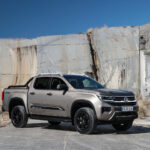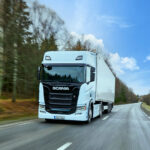AdBlue: from zero to hero
AdBlue: from zero to hero
South Africa was introduced to AdBlue some 13 years ago. Now, writes ALEX HIME, director of Viscol Eco Solutions, it is becoming increasingly popular in this country.
With the World Cup coming to South Africa, 2010 was an exciting year. The world opened to us, bringing so many great things – like the Integrated Rapid Transit (IRT) system that saw the MiCiTi bus being introduced as the new means of public transport in Cape Town.
Despite the country only having Euro 2 vehicle emission legislation, these Optare Solo buses were fitted with Selective Catalytic Reducers (SCRs), gaining them a Euro 4 rating and meaning they required the use of AdBlue. This allowed supporters to be transported around Cape Town in style, with the least harmful emissions at the time – something new for South Africa.
Soon, Blue Sky Environmental Technologies began manufacturing AdBlue for the Rea Vaya Bus Transit and Tshwane Rapid Transit systems, as the craze spread to Johannesburg and Tshwane. These IRT systems were set up as an advancement for transformed black-empowered companies (primarily made up of taxi federations, taxi owners, and similarly interested people). Blue Sky is proud to have been the pioneer in localising the manufacture of AdBlue to support local transformation, by way of supplying a product which would otherwise have had to be imported, bearing in mind that AdBlue is two-thirds water.
AdBlue plant opened
That same year, Blue Sky formed a joint venture with Germany’s biggest AdBlue manufacturer, Kruse (now known as Stockmeier). A manufacturing plant was established in Centurion, Tshwane, inaugurated by the Minister of Energy at the time, Dipuo Peters.
Blue Sky AdBlue was the first diesel exhaust fluid manufactured in South Africa under a Verband der Automobilindustrie (VDA) license and ISO 9001 and 14001 quality/environmental certification. As part of the product’s traceability, all blend samples are sent to Europe for analysis and each batch number has a corresponding certificate of conformance. The VDA audits the company every three years and verifies compliance.
Five years later, Blue Sky obtained Kruse’s shares and became fully independent, allowing the sourcing of components directly from external suppliers. Highest-quality automotive urea, the raw material for AdBlue, is sourced directly and exclusively from European factories, and Blue Sky AdBlue is manufactured according to ISO 22241 specifications. It is packaged in intermediate bulk containers (IBCs) and small packs. Bulk AdBlue is delivered in a 30 000-litre dedicated stainless steel road tanker.
Supplying car manufacturers
South Africa has a thriving automotive manufacturing industry, which also exports many vehicles. The export diesel variants of these vehicles must leave the assembly line filled with AdBlue. If not, the vehicle will remain immobile; one of the peculiarities of the SCR system is that, once the AdBlue runs out, the vehicle will either not start or will only operate in limp mode. This is to prevent abuse of the system.
It is therefore fitting that these automotive OEMs called upon the professional services of Blue Sky Environmental Technologies to supply their first fills and aftermarket.
Viscol Eco Solutions helps to make this happen, as a BEE level 2 company responsible for Blue Sky AdBlue sales.
Published by
Focus on Transport
focusmagsa




